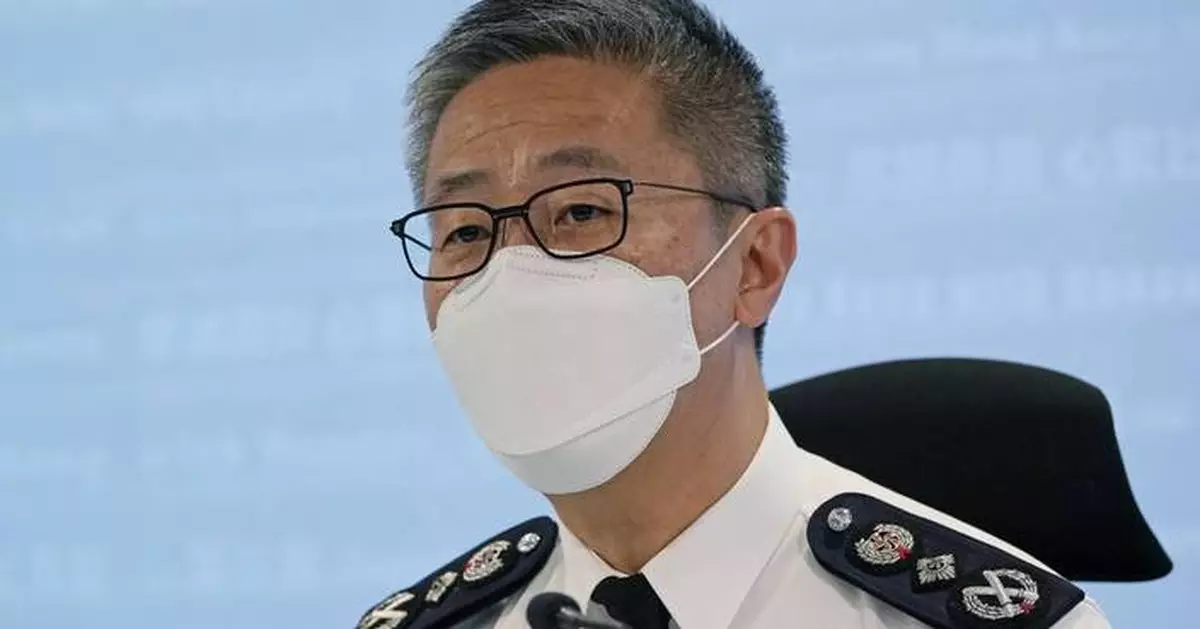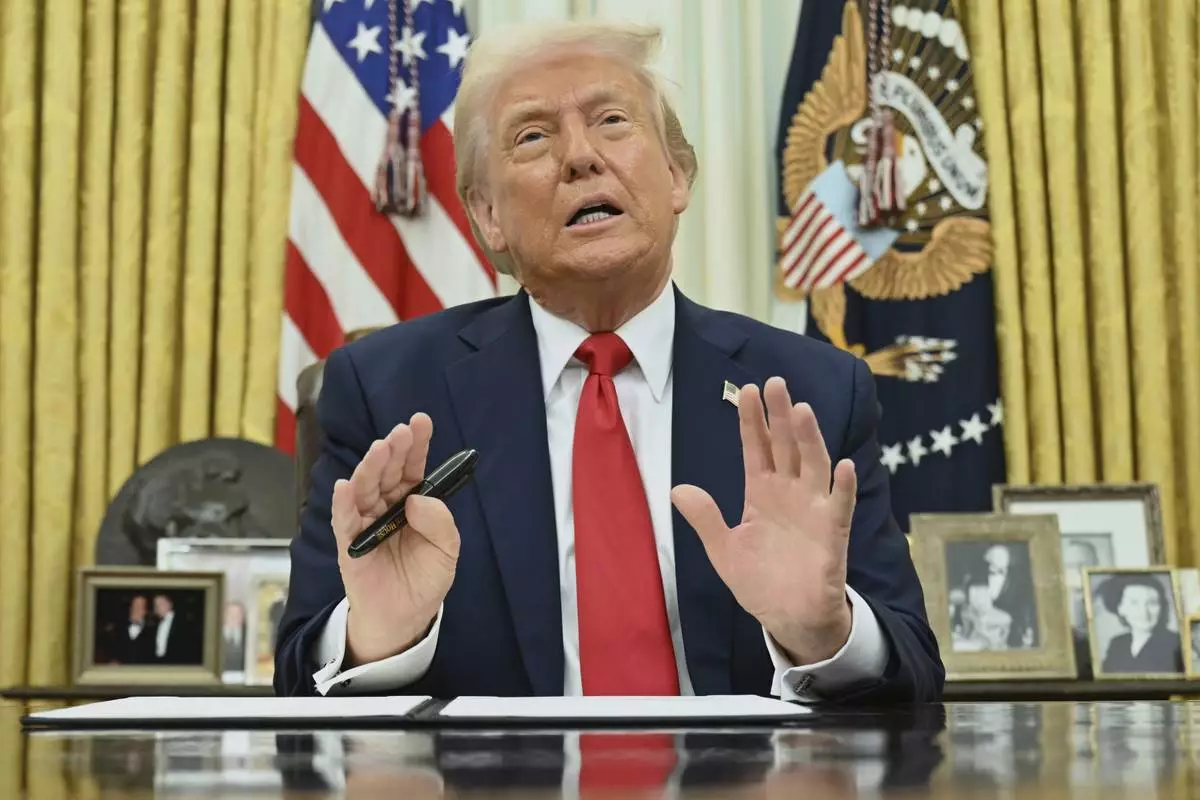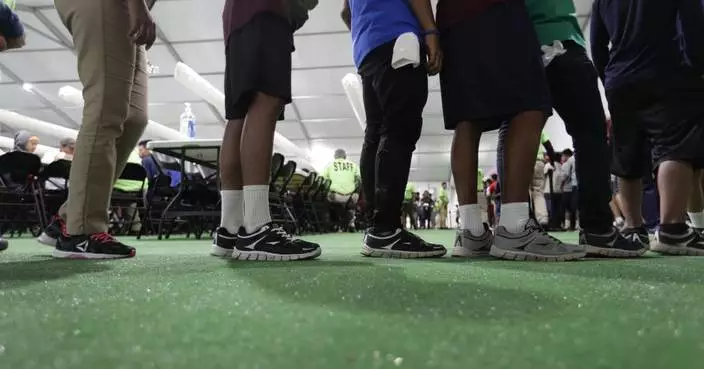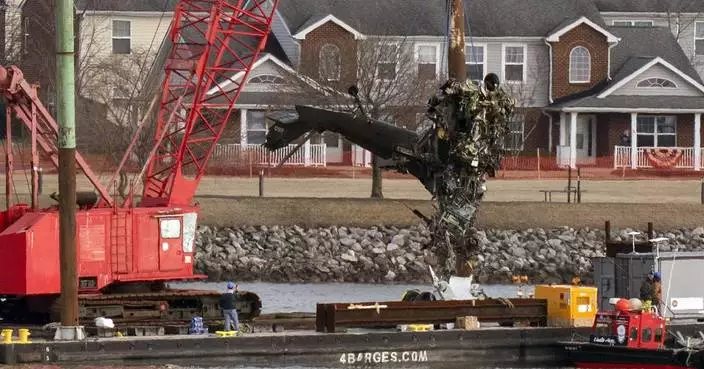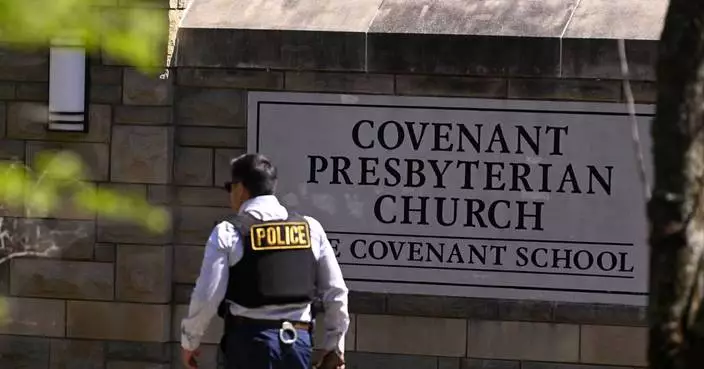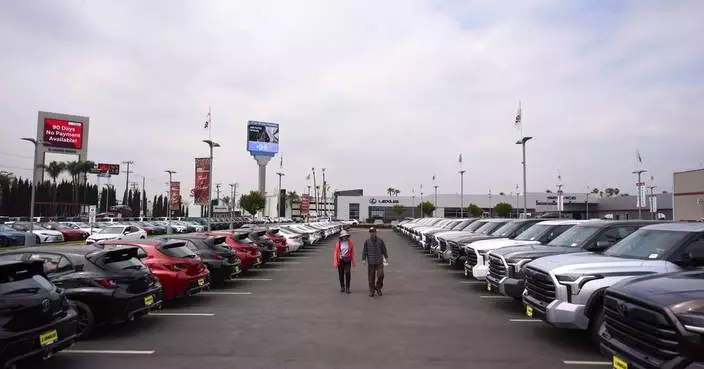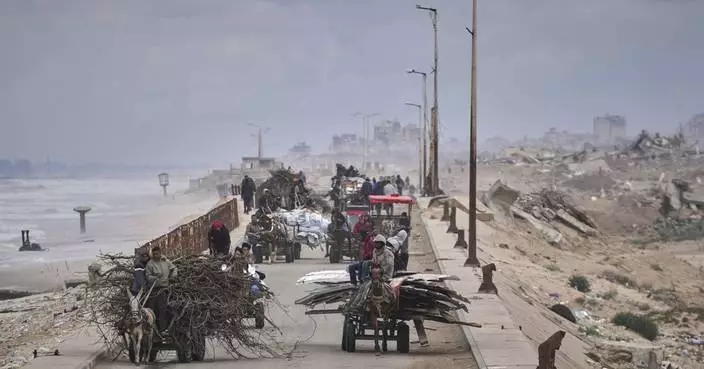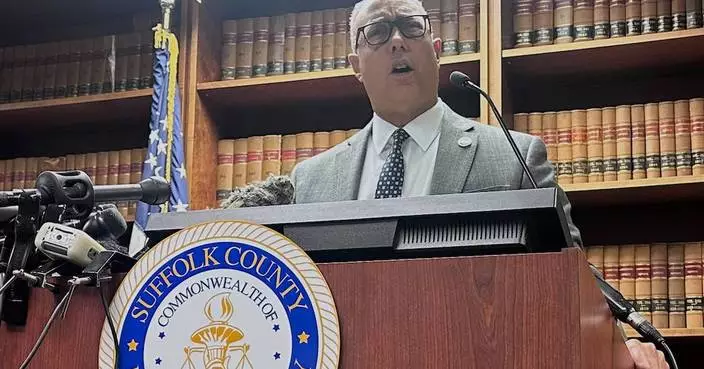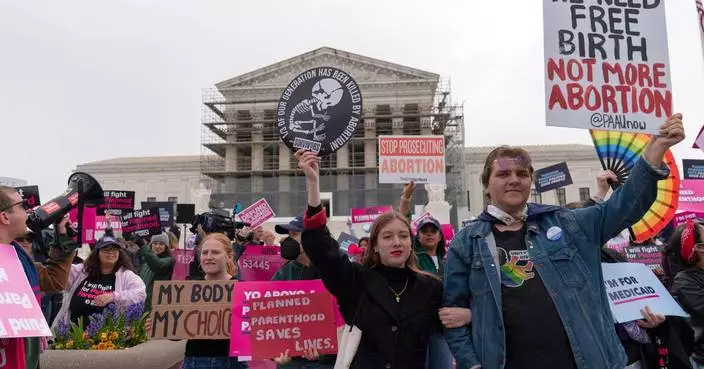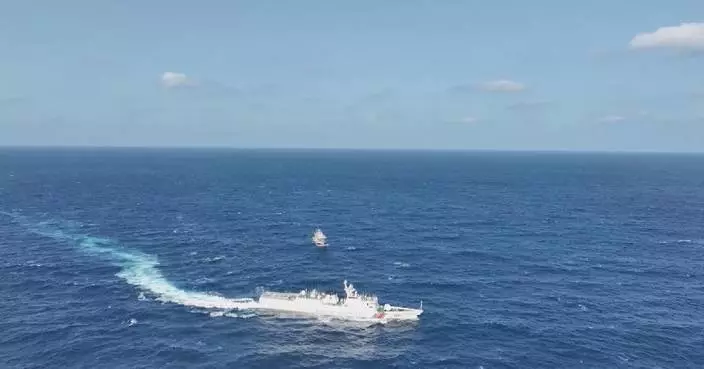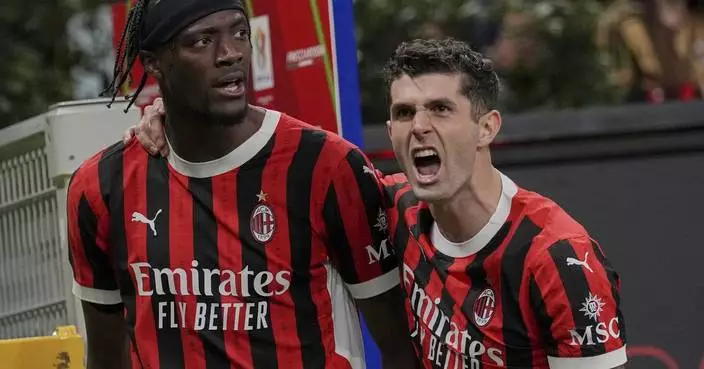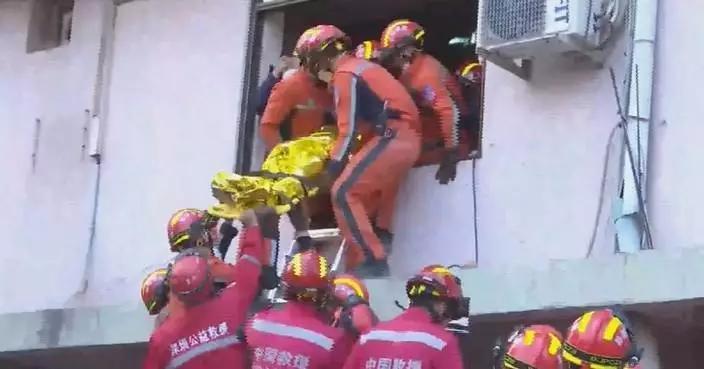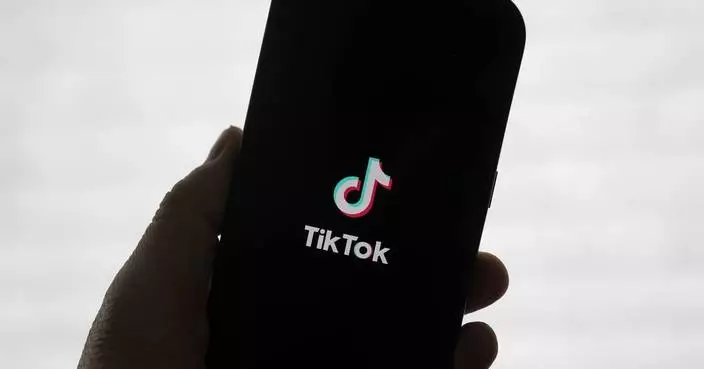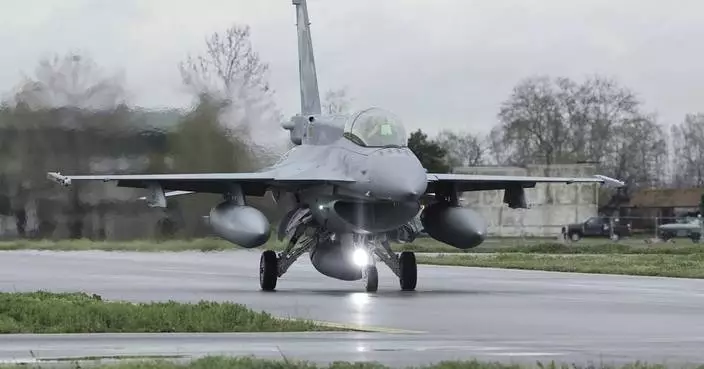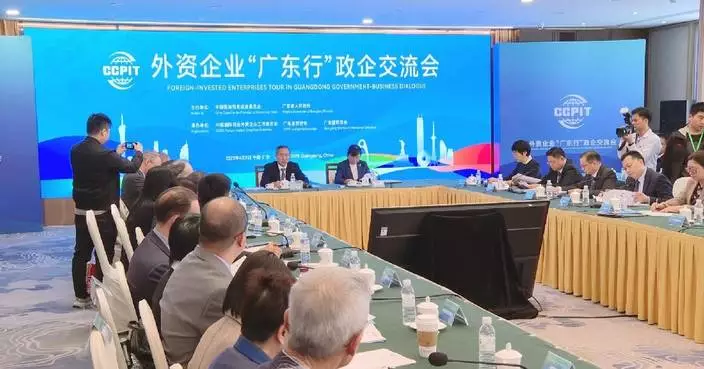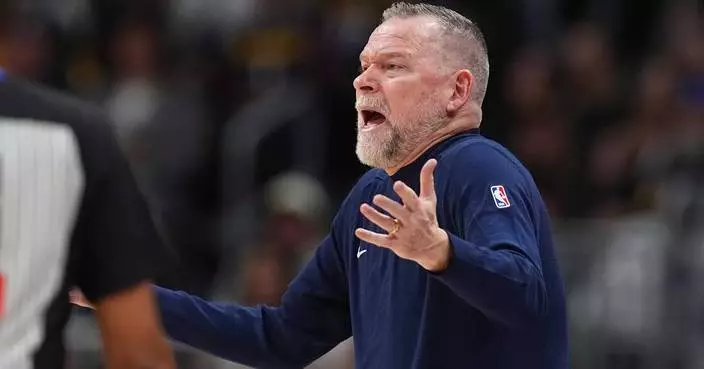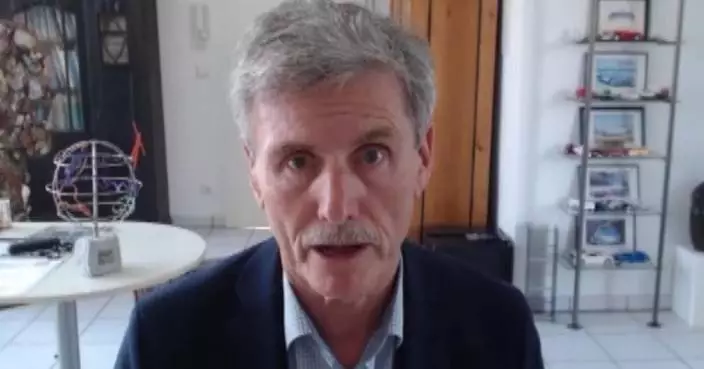HONG KONG (AP) — The United States sanctioned six Chinese and Hong Kong officials who it alleged were involved in “transnational repression” and acts that threaten to further erode the city's autonomy.
The six officials included Justice Secretary Paul Lam, security office director Dong Jingwei and police commissioner Raymond Siu.
The sanctions are expected to further escalate tensions between Washington and Beijing, who are already locked in friction over trade tariffs and other issues like Taiwan.
“Beijing and Hong Kong officials have used Hong Kong national security laws extraterritorially to intimidate, silence, and harass 19 pro-democracy activists who were forced to flee overseas, including a U.S. citizen and four other U.S. residents,” the U.S. State Department said.
The statement, dated Monday, said the six officials were linked to entities or actions that allegedly engaged “in the coercing, arresting, detaining or imprisoning of individuals” under the authority of the city's security law, or implementing the law.
Lam said the sanctions would have little impact on him. “They do not affect my work; they do not affect my life,” he said in a statement, adding that the sanctions represented “blatant tyrannical bullying intended to deter people from participating in safeguarding national security.”
The other three affected officials were Sonny Au, the secretary-general for the city's committee for safeguarding national security, and Dick Wong and Margaret Chiu, both assistant commissioners of the police.
Since Beijing imposed a national security law in 2020 to quell the 2019 massive anti-government protests, Hong Kong authorities have prosecuted many leading activists in the former British colony, which returned to Chinese rule in 1997.
The crackdown has drawn criticism from foreign governments, especially because the city was promised that its Western-style civil liberties and semi-autonomy would be kept intact for at least 50 years during the 1997 handover. Beijing and Hong Kong governments insist the law is necessary for the city’s stability.
Over the past two years, Hong Kong authorities have issued arrest warrants for 19 activists based overseas, with bounties of $1 million Hong Kong dollars ($128,536) for information leading to each of their arrests. The affected activists included former pro-democracy lawmakers Nathan Law and Ted Hui. They also canceled the passports of some of the overseas-based activists under a new security law introduced to the city last year.
The U.S. citizen wanted is Joey Siu, who on Monday wrote in a X post that she was “delighted to see this long-awaited step finally taken” by the U.S. government. She said she looked forward to further action addressing Beijing's “ongoing crackdown on Hong Kong’s democratic freedoms.”
The Hong Kong office of China's foreign ministry condemned the sanctions, saying they again exposed the ill-intention of the U.S. to undermine the city's prosperity and contain China's development. It urged Washington to stop interfering in the city's affairs.
“China will surely take effective countermeasures against these despicable acts by the U.S.!” it said in a statement.
In Beijing, Chinese Foreign Ministry spokesperson Guo Jiakun said China would take resolute countermeasures for any wrong actions by the U.S. He argued the actions taken by Hong Kong police against “anti-China elements” who fled abroad were carried out according to the law and that the U.S. has no right to interfere with the city's national security cases.
The Hong Kong government strongly condemned the U.S. for the sanctions, saying it despises them and is not intimidated by them.
“It, once again, clearly exposed the U.S. barbarity under its hegemony, which is exactly the same as its recent tactics in bullying and coercing various countries and regions,” it said in a statement.
It said the “absconders” mentioned by the U.S. government are wanted for arrest because they continued to blatantly engage in activities endangering national security overseas. It said the U.S. has given cover for those “who have committed these evil deeds," and therefore it was necessary for the city to take lawful measures to combat the acts.
“The imposition of the so-called ‘sanctions’ in the guise of defending human rights and democracy indeed constitute a demonstration of shameless hypocrisy with double standards on the part of the U.S.,” it said.
Hong Kong police said the U.S. government's attempt to use political pressure to interfere with law enforcement work is effectively encouraging illegal activities.
But Frances Hui, one of the overseas-based activists targeted by the authorities, wrote on X that it was a critical step in addressing the city's worsening crackdown. She said they hoped it marked the beginning of a sustained effort to hold perpetrators accountable.
The latest U.S. sanctions were not the first related to the city. During Donald Trump's first presidential term, his government also imposed sanctions on Hong Kong and Chinese officials for undermining Hong Kong’s autonomy.
In 2021, the U.S. slapped more sanctions on officials over Beijing’s crackdown on political freedoms in the semi-autonomous city under former U.S. President Joe Biden administration.
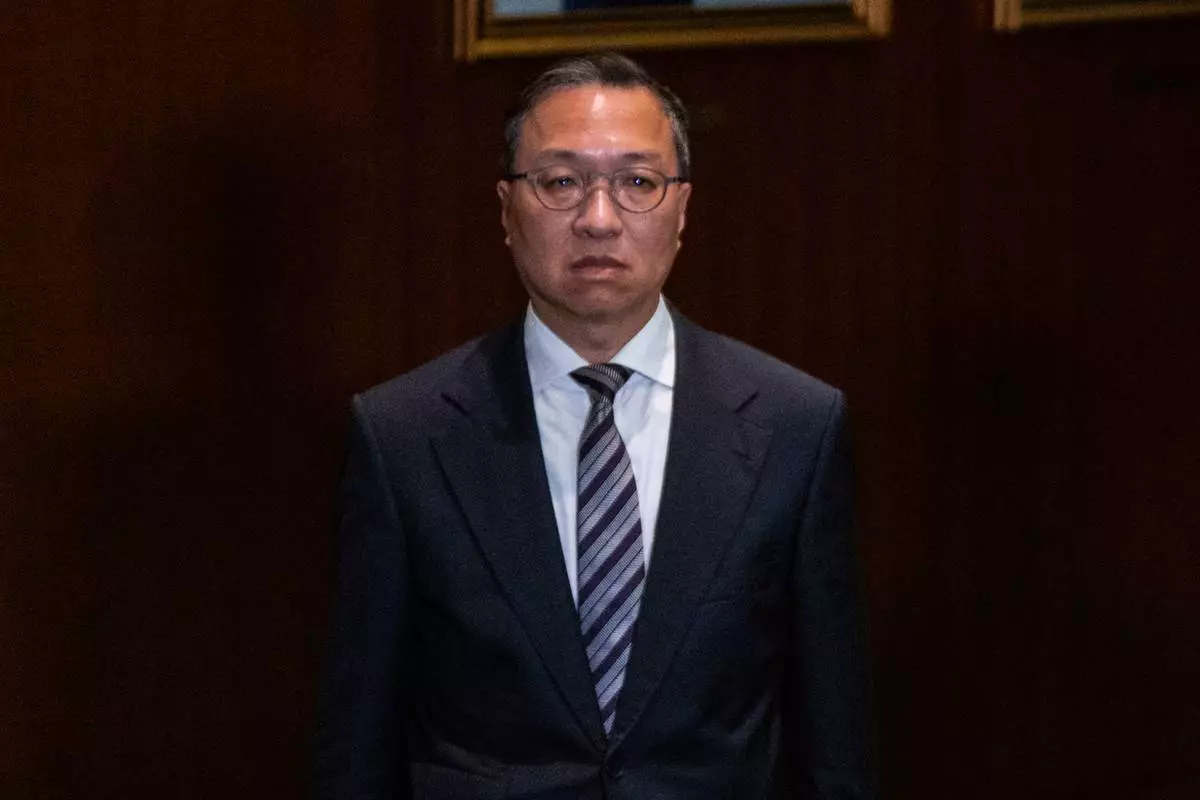
FILE - Hong Kong's Secretary for Justice Paul Lam attends a press conference following the passing of the Basic Law Article 23 legislation at the Legislative Council in Hong Kong, on March 19, 2024. (AP Photo/Louise Delmotte, File)
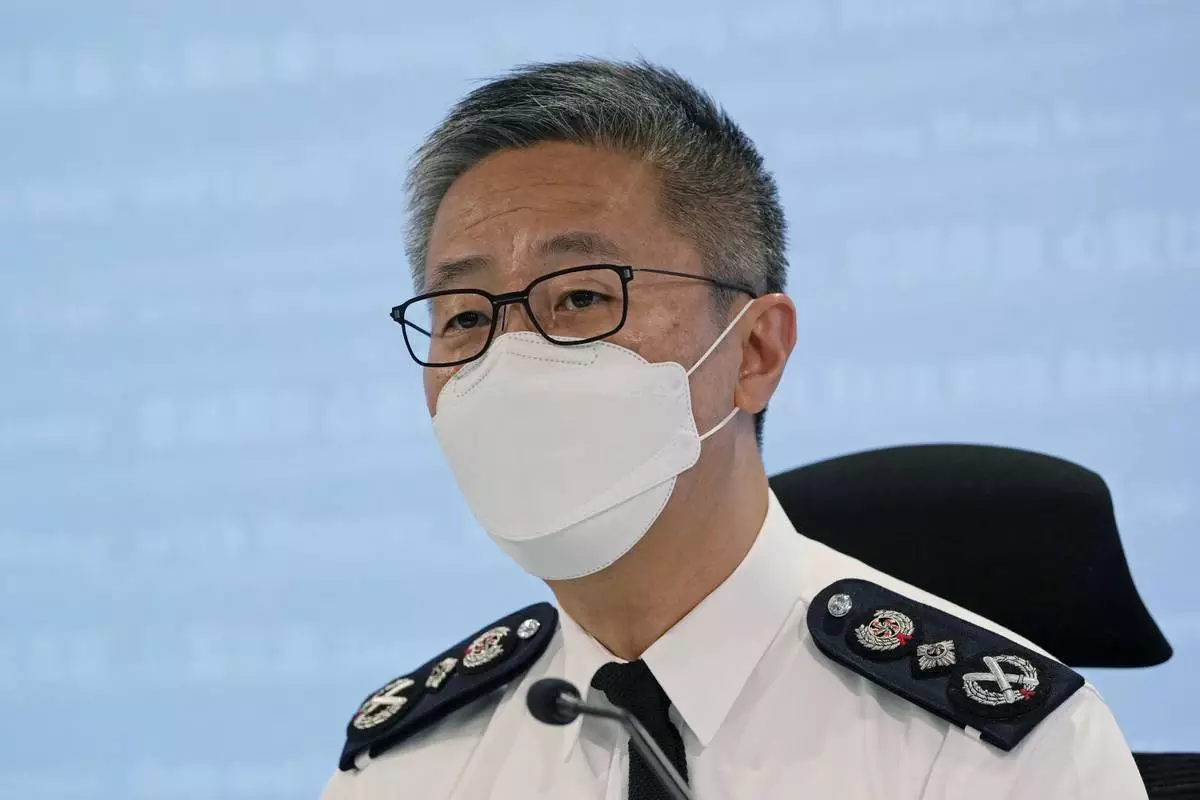
FIEL - Raymond Siu Chak-yee, commissioner of police speaks during a press conference to "review the law and order situation of Hong Kong and the work of the police in 2021", at the police headquarters in Hong Kong, on Jan. 27, 2022. (AP Photo/Kin Cheung, File)


